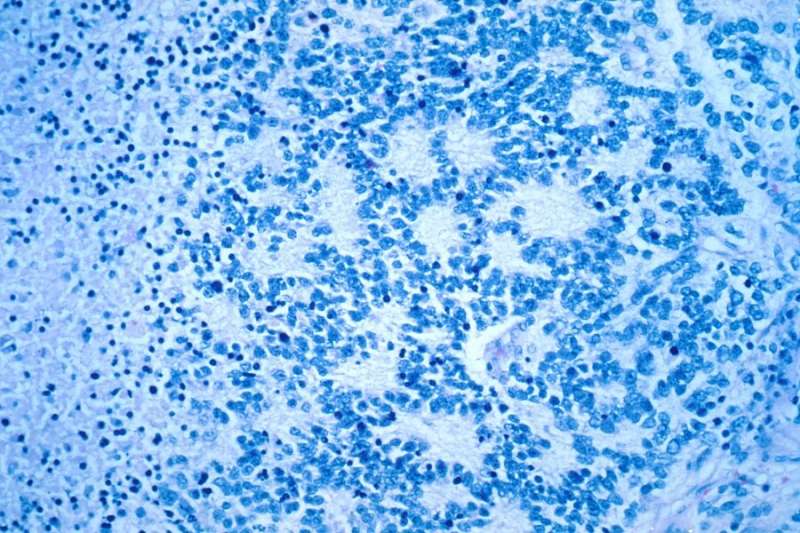Turning the molecular clock back on halts neuroblastoma tumor growth

Researchers at Baylor College of Medicine and Texas Children's Cancer Center have found that the molecular clock may be key to treating neuroblastoma. The researchers studied patients with high expression of MYCN, known to be the major oncogenic driver of neuroblastoma. In those patients, two main components of the molecular clock were repressed—BMAL1, which oscillates to drive the clock cycle, and RORa, which activates BMAL1. This repression correlated with poor clinical outcome.
"We were very interested in how MYCN can reprogram tumor metabolism," said Dr. Eveline Barbieri, assistant professor of pediatrics—hematology and oncology at Baylor. "We found that MYCN amplification inhibits BMAL1 expression and oscillation, leading to metabolic reprograming and oncogenesis."
Because BMAL1 and RORa suppression allowed the tumor cells to grow, the researchers wanted to know if restoring these components of the molecular clock would stop growth in neuroblastoma cells. They tested two approaches in the lab—genetic overexpression of RORa and a pharmaceutical approach using a synthetic ligand that reactivates RORa. Both techniques successfully restored BMAL1 expression and oscillation.
Restoring the clock blocked tumor growth
"Our strategy to restore BMAL1 expression also blocked tumor growth, suggesting that repression of the molecular clock is indeed oncogenic," Barbieri said. "We showed that restoration of the molecular clock suppresses neuroblastoma growth and also makes neuroblastoma tumors more sensitive to conventional chemotherapy treatments, offering a potential future therapeutic approach."
"Our cells follow a molecular clock that controls cell metabolism, much like the body's circadian rhythm controls sleep cycles. We know that metabolic processes are really important in how tumors develop resistance to chemotherapy," Barbieri said. "In the future, if we can develop therapeutics that restore the molecular clock in a clinical setting, we may be able to use them in combination with standard chemotherapy to avoid treatment resistance."
More information: Myrthala Moreno-Smith et al, Restoration of the molecular clock is tumor suppressive in neuroblastoma, Nature Communications (2021). DOI: 10.1038/s41467-021-24196-4



















